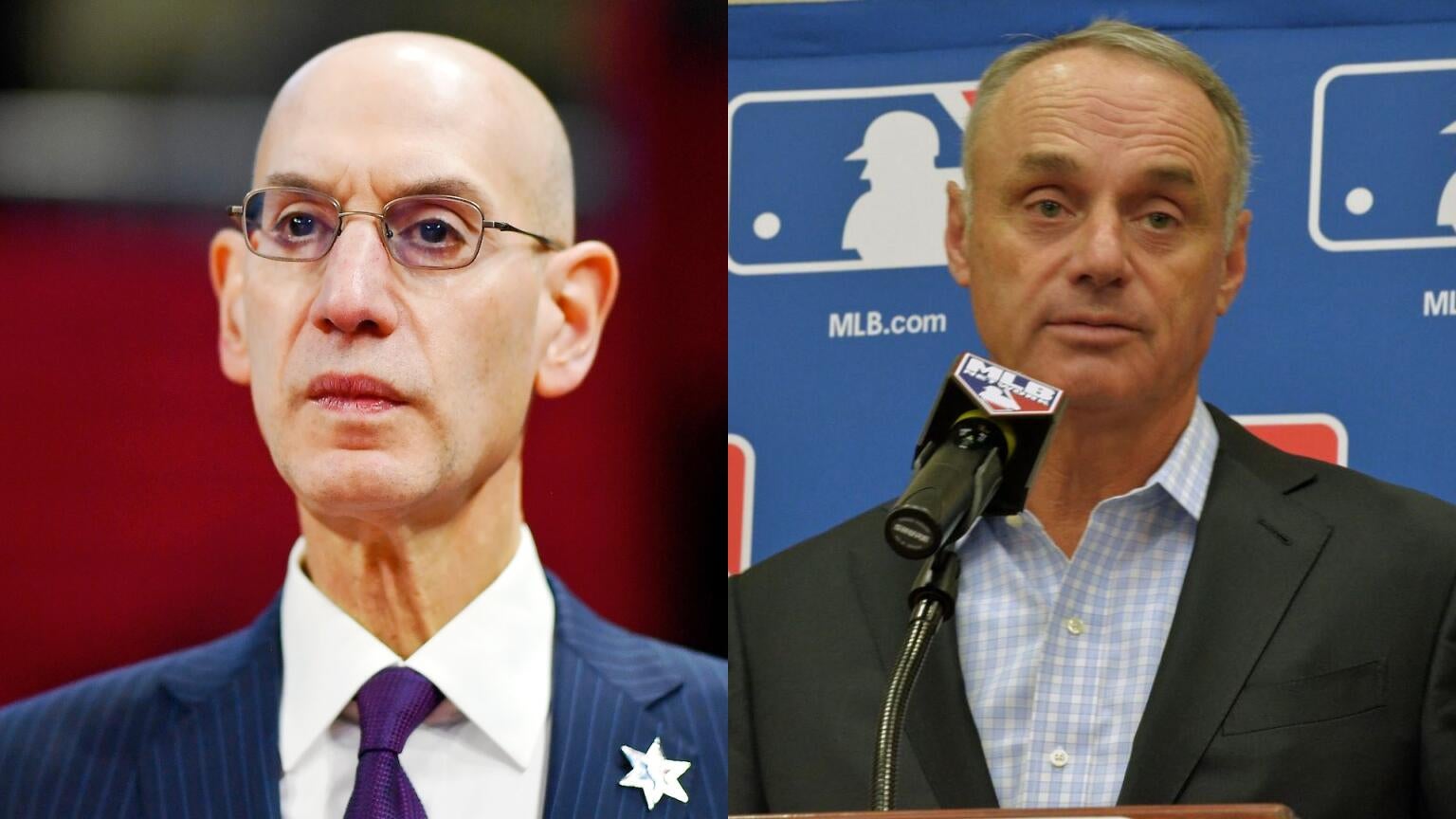
As Sinclair Broadcast Group continues to piece together the parts necessary to launch a direct-to-consumer-based RSN streaming service, negotiations between the broadcast giant and the sports leagues have become testy at best.
One thing that has become apparent, is that the price that consumers will be asked to pay is far heftier than many initially had believed. That piece of the puzzle has caused leaders from the leagues to question whether Sinclair can even pull the plan off. Sinclair has said that a DTC streaming product could live in the $15-to-$20 per month range. Outside observers have indicated that the price for the app could be as high as $23 per month.
“For now, clearly, the (cable) bundle’s broken. I mean, we’re seeing now an issue that’s very topical at the moment, our regional sports networks, Sinclair in particular, and they’re, we’re trying with them to work through those issues,” said NBA Commissioner Adam Silver on Tuesday at the World Congress of Sports.
Silver went on to say that cable viewing in the NBA’s younger demographic has declined 70 percent. In addition, he indicated that Sinclair actually may have overpaid for the rights to the NBA.
“They paid $10 billion, it’s not clear, it’s a good deal with $5 billion,” Silver said. Sinclair purchased the former Fox Sports RSNs for $9.6 billion in 2019, before rebranding them as Bally Sports Networks.
A source close to the deal responded to Silver’s comment was quoted by The Athletic.
“It’s sort of making a statement about the value of his rights more than he is about the value of the RSN rights,” the source said. “So he’s sort of denigrating the value of his own rights in a way, which is curious.”
Silver’s comments fell in line with comments from MLB Commissioner Rob Manfred, also in attendance at the World Congress of Sports. Manfred was more blunt, however, saying that Sinclair does not have enough digital rights from enough clubs in order to have a viable direct-to-consumer product.
Sinclair holds the rights to a total of 42 teams across Major League Baseball, the NBA, and the NHL — a much smaller number than the 92-team total of the three leagues combined.
“The other set of rights they’ve talked a lot about is gambling rights,” Manfred said, “they don’t have those either. We have been clear with Diamond (Sports Group, the Sinclair subsidiary that technically owns the Bally Sports RSNs) from the very beginning, this was not a late starting issue. We’ve been very clear with them from the beginning that we see both those sets of rights as extraordinarily valuable to baseball, and we’re not just going to throw them in to help Sinclair out.”
Manfred continued, saying, “we believe those digital rights are crucial and we want to own and control the platform on which they’re delivered, we may have partners in that process. But this idea that late in the discussions we somehow demanded an equity stake (from Sinclair), that’s just not accurate.”
Sinclair has faced an uphill battle since taking over the Fox Sports regional channels. In calendar year 2018, the RSN portfolio delivered a combined $3.8 billion in revenue across 74 million subscribers. But the pandemic wreaked havoc with live sports last year. Today, Sinclair shares are trading for half their value from their May 2019 high. Sinclair Broadcast Group reported a loss of $3.2 billion in Q3 2020, including writing off part of the value of the RSNs. Multiple reports have suggested that Diamond Sports Group is close to bankruptcy, likely due to lackluster subscriber and carriage numbers.
“I think that the negativity surrounding the RSNs has been increased exponentially as a result of the situation with the Sinclair subsidiary Diamond. Part of their problem is cord-cutting. The other part of their problem is there’s excessive leverage on that business,” Manfred said. “If you think about what they paid for it, how much debt they have on it, I mean, you think it’s over 80%, it’s a huge number. And that leverage has produced headlines that are more negative. There are RSNs out there that aren’t thriving or growing, but they’re going to survive. Look, look, there are RSNs — YES and NESN — that have businesses that remain profitable, they’re affected by cord-cutting. But the fact of the matter is I think the negativity has been increased by the Diamond (Sinclair) situation.”
Another element of drama in the mix: MLB tried to buy the Fox RSNs in 2019. As a result, they may not be interested in playing ball, so to speak, with Sinclair. They may be interested in bringing those elements in-house, after all. The future remains yet to be seen.
